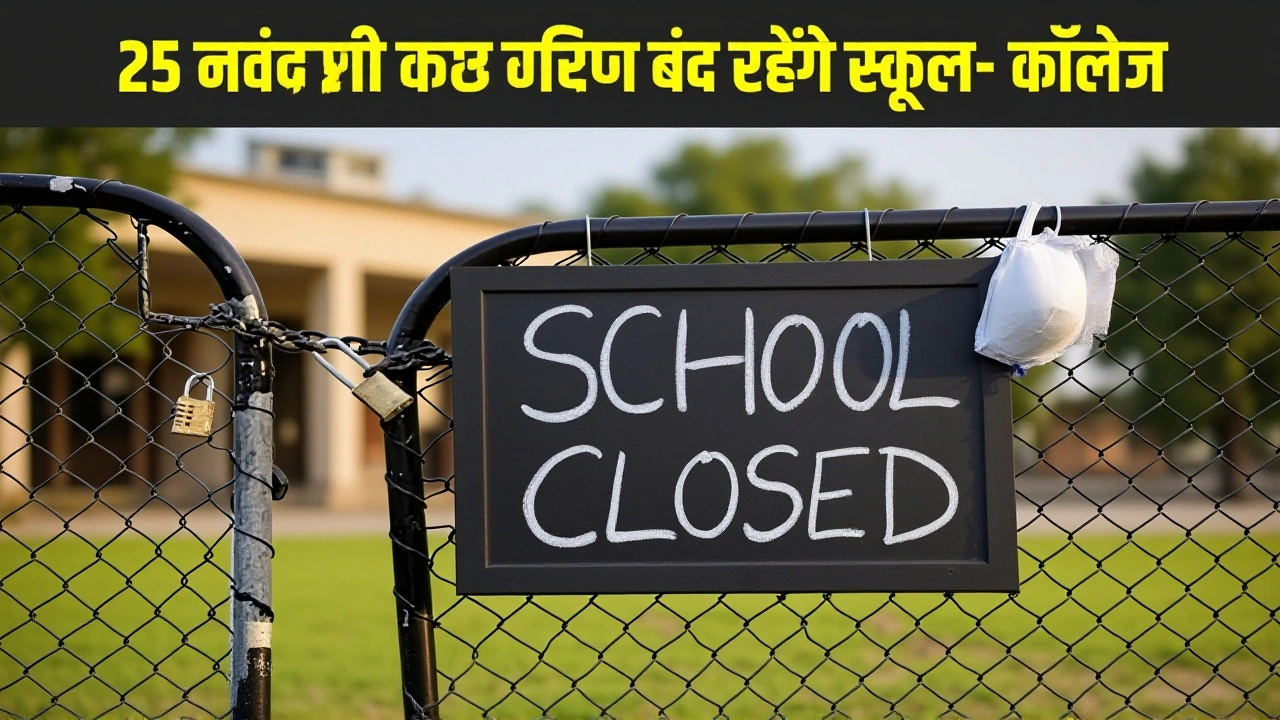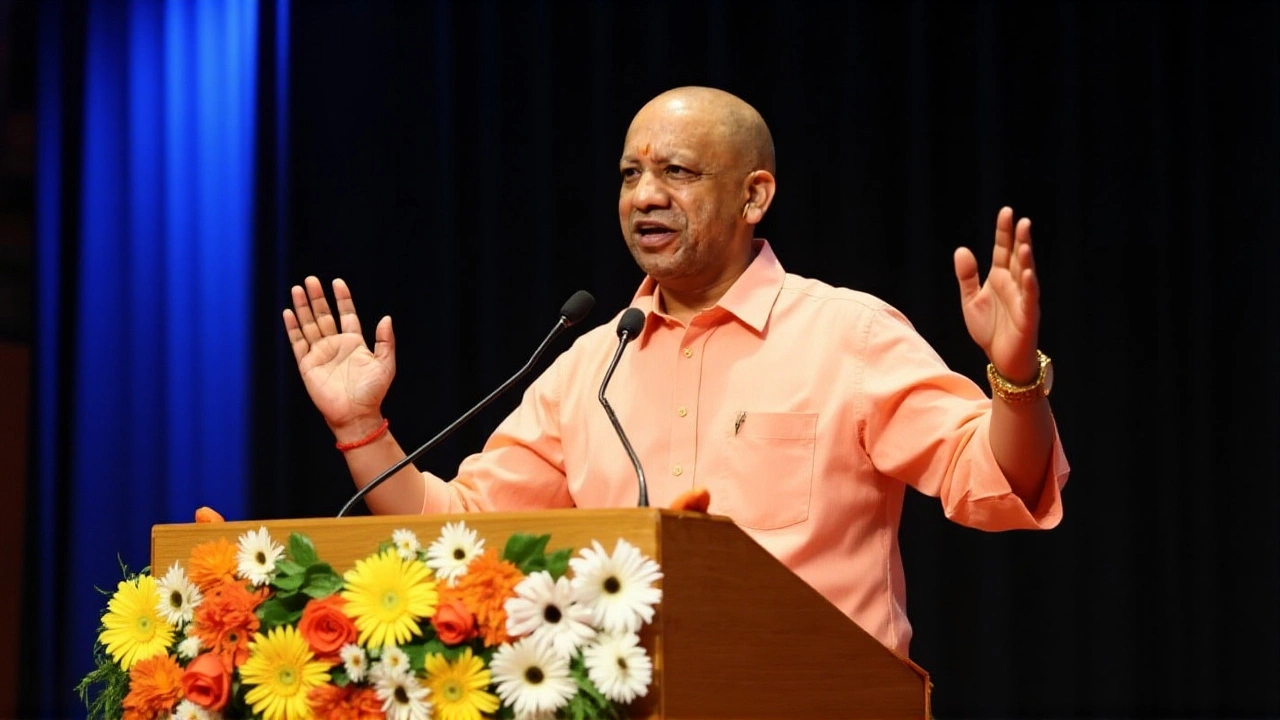On Guru Tegh Bahadur’s 350th Martyrdom Anniversary, millions across northern India will get a day off as Delhi, Uttar Pradesh, and Chandigarh have officially declared 25 November 2025 a public holiday. The decision, announced just days in advance, affects schools, colleges, and government offices — shuttering daily operations for educators, civil servants, and families alike. The move honors the sacrifice of the ninth Sikh Guru, whose stand for religious freedom in 1675 ultimately cost him his life — a legacy that still resonates powerfully today.
Why This Holiday Matters More Than Ever
It’s not just another day off. Guru Tegh Bahadur was executed on the orders of Mughal Emperor Aurangzeb for refusing to convert to Islam — and for defending the right of Kashmiri Pandits to practice their faith freely. His martyrdom wasn’t about sectarianism; it was about universal human dignity. In a time when religious tensions still simmer across the subcontinent, this holiday carries a quiet but urgent message: that tolerance isn’t optional. The Delhi Government made this clear in its official tweet by Chief Minister Rekha Gupta, who wrote: “Guru Sahib’s courage, compassion, and message of religious freedom will always inspire us.”
What’s striking is how quickly the decision unfolded. The Lieutenant Governor of Delhi issued the order on 23 November 2025, just two days before the holiday, revoking an earlier notice that had labeled it a “restricted holiday.” Now, it’s full public holiday — meaning no work, no exceptions. That sudden shift caught many off guard. Schools, especially in the National Capital Region, hadn’t informed parents. Some families are scrambling — wondering if their child’s school will be open or closed. The advice from education officials? Call your school.
State-by-State Breakdown: Who’s Observing and How
While Delhi, Uttar Pradesh, and Chandigarh made headlines, they’re not alone. Haryana has also declared a holiday — and plans a major state-level event in Kurukshetra, where historical ties to Sikh heritage run deep. Punjab and Uttarakhand have followed tradition, closing schools as they do every year.
But the biggest administrative shift came from Uttar Pradesh. The Yogi Adityanath government had originally scheduled the holiday for 24 November 2025. Then, on 20 November 2025, a revised order signed by Principal Secretary Manish Chauhan moved it to the 25th. Why? Sources say it was to align with the actual date of martyrdom on the Nanakshahi calendar — a subtle but meaningful nod to community sensitivities. The change means thousands of government employees across cities like Lucknow, Kanpur, and Varanasi now have a day they weren’t expecting.

Behind the Scenes: Traffic, Security, and Logistics
The holiday isn’t just about closure — it’s about control. With large gatherings expected near historical sites and gurdwaras, authorities have taken preemptive steps. From 11 PM on 24 November, all heavy vehicles and private cars heading toward Ayodhya have been barred at border checkpoints. Police are stationed at diversion points, and the restrictions will remain until 26 November 2025, after the main commemorative events conclude. It’s an unusual measure — but not unprecedented. Similar controls were seen during the 2024 Ram Mandir consecration, when movement near religious sites was tightly managed.
Meanwhile, transport departments in Delhi and Chandigarh have suspended bus services on major routes. Metro operations will continue, but with reduced frequency. For daily wage workers and commuters, this means extra planning — and extra cost.
What This Means for Students and Workers
Consider the ripple effect: over 12 million students in Uttar Pradesh alone are affected. In Delhi, nearly 800,000 government employees will get an unexpected day off. Many will use it to visit gurdwaras, attend prayers, or spend time with family. But for others — single parents, gig workers, hospital staff — the holiday brings complications. Emergency services remain operational, but with skeleton crews. Hospitals in Lucknow and Gurgaon have issued advisories urging non-urgent visits to be postponed.
And here’s the twist: hybrid learning in Delhi’s primary schools — already in place for grades K–5 — means some parents may still be expected to supervise remote classes. The state hasn’t clarified whether online lessons will continue. That ambiguity is causing confusion. “We got a WhatsApp message at midnight,” said Priya Mehta, a mother of two in Rohini. “One says ‘holiday,’ another says ‘online class.’ Who do we believe?”

Historical Roots: Why Guru Tegh Bahadur Still Commands Respect
Many younger Indians don’t know the full story. Guru Tegh Bahadur didn’t die in battle. He was publicly beheaded in Chandni Chowk, Delhi, in 1675 after refusing to convert. His crime? Standing up for Kashmiri Hindu scholars who were being forced to abandon their faith. He said: “If you want to force conversion, take my head first.” His son, Guru Gobind Singh, later founded the Khalsa — a movement that reshaped Sikh identity. Today, his martyrdom is seen not just as a religious milestone, but as a foundational moment for pluralism in India.
Compare it to today: in 2025, we’re still debating who gets to practice their faith without fear. That’s why this holiday isn’t just symbolic. It’s a statement. When governments close schools and offices, they’re saying: this sacrifice matters. This principle matters.
Frequently Asked Questions
Which institutions will be closed on 25 November 2025?
All government offices, schools, colleges, and public institutions under Delhi, Uttar Pradesh, Chandigarh, Haryana, Punjab, and Uttarakhand administrations will be closed. Private schools and businesses may choose to remain open, but most are following the public holiday. Banks and ATMs will operate with limited services, and emergency services like hospitals and police remain fully functional.
Why was the date changed from 24 to 25 November in Uttar Pradesh?
The change was made to align with the Nanakshahi calendar, which marks Guru Tegh Bahadur’s martyrdom on 25 November 2025. The original date of 24 November was based on a lunar calendar conversion that didn’t fully account for regional Sikh traditions. The revised order, signed by Principal Secretary Manish Chauhan, reflects growing sensitivity to community-specific observances — a subtle but significant shift in administrative policy.
Will public transport be affected?
Yes. Bus services in Delhi, Chandigarh, and major UP cities like Lucknow and Agra will be suspended. Metro trains will run on reduced schedules, especially on lines connecting gurdwaras and pilgrimage sites. Private cab services like Ola and Uber are expected to see high demand, with surge pricing likely. Travelers heading to Ayodhya face roadblocks from 11 PM on 24 November until 26 November.
Are private companies required to give employees the day off?
No. The holiday applies only to government institutions. Private companies, IT parks, and retail chains can decide independently. However, many multinational firms in NCR and Chandigarh are voluntarily closing to honor the occasion, especially those with large Sikh workforces. Smaller businesses, particularly in rural areas, are likely to remain open unless local pressure demands otherwise.
Why are there traffic restrictions near Ayodhya?
The restrictions are due to anticipated large-scale pilgrimages to Ayodhya on 26 November, coinciding with the anniversary of Guru Gobind Singh’s birth. Authorities fear overcrowding and security risks, especially after the 2024 Ram Mandir opening. The ban on vehicles — including private cars — aims to prevent congestion and ensure smooth movement of security and emergency vehicles during the two-day commemoration period.
How are schools preparing students for this day?
Many schools in Delhi and UP have scheduled special assemblies, poetry recitals, and short films on Guru Tegh Bahadur’s life. Some have distributed pamphlets explaining his role in defending religious freedom. However, in rural areas, awareness remains low. Teachers in districts like Badaun and Saharanpur report that students had never heard of him before this announcement — highlighting a gap in civic education that officials now say they’ll address in next year’s curriculum.
